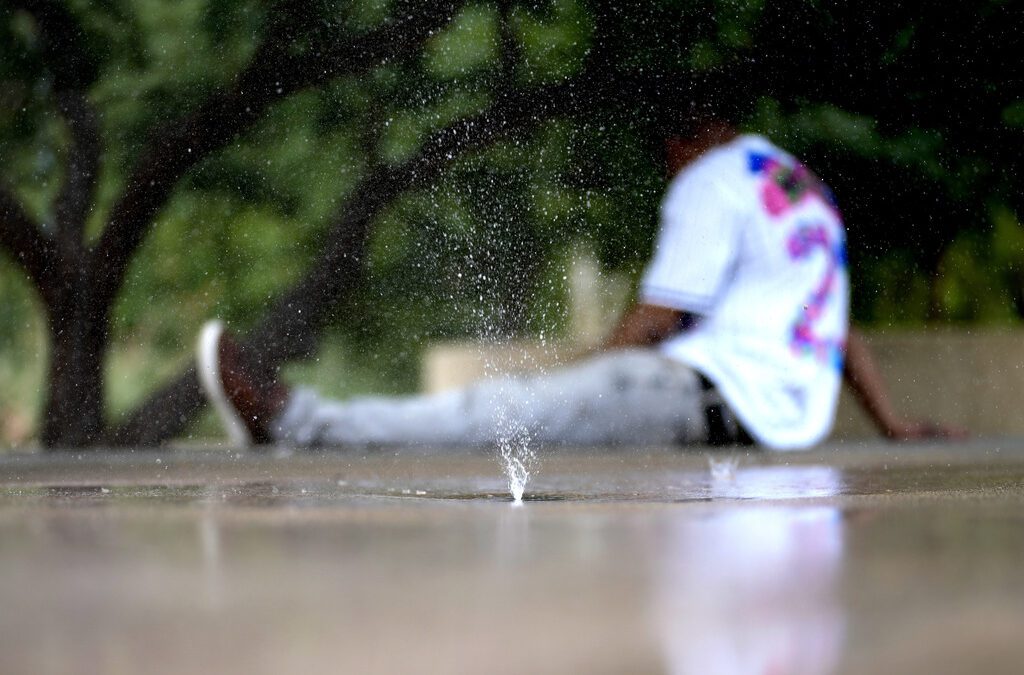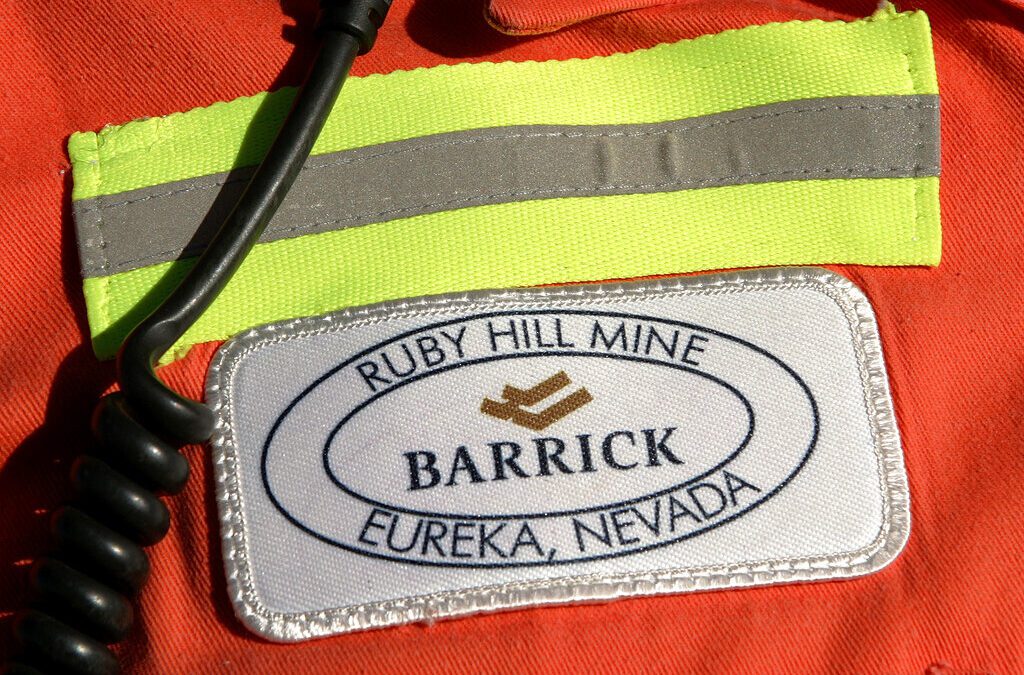
TOPSHOT - Traffic warden Rai Rogers mans his street corner during an 8-hour shift under the hot sun in Las Vegas, Nevada on July 12, 2023, where temperatures reached 106 degrees amid an ongoing heatwave. More than 50 million Americans are set to bake under dangerously high temperatures this week, from California to Texas to Florida, as a heat wave builds across the southern United States. (Photo by Frederic J. BROWN / AFP) (Photo by FREDERIC J. BROWN/AFP via Getty Images)
If enacted, the bill would allow the federal government to declare extreme heat a disaster, vastly changing the way officials are able to respond to extreme temperatures. But its future remains uncertain.
A key panel under the US House Committee on Transportation and Infrastructure has advanced a proposal by Nevada Democratic US Rep. Dina Titus that would allow the federal government to better address extreme heat and provide communities with greater resources such as cooling centers during periods of extreme heat.
As drafted, Titus’ Extreme Weather and Heat Response Modernization Act would allow periods of extreme heat to be a declarable emergency, and direct the administrator of the Federal Emergency Management Agency (FEMA) to convene an advisory panel. That panel would consist of representatives from FEMA and state and local officials within the 10 FEMA regions to establish a new process for determining incident periods following an authorized disaster declaration.
If enacted, it would direct the FEMA administrator to submit a report to Congress detailing that panel’s findings and issue regulations implementing the panel’s recommendations. It would also allow FEMA to begin stockpiling equipment such as portable air conditioners and direct FEMA to publish guidance on extreme heat events.
Additionally, the bill would require the FEMA administrator to conduct a study measuring the impact of extreme heat on infrastructure, the economy, and public health, and further recommend a framework for mitigation as well as response.
“Extreme heat events kill more people annually than hurricanes and tornadoes combined, and tragically there have already been 224 heat-related deaths in Las Vegas this year alone,” Titus said in a statement celebrating the bill’s passage from the Transportation and Infrastructure subcommittee on Economic Development, Public Buildings, and Emergency Management.
“As temperatures continue to rise over longer periods of time, communities need more resources to keep people safe,” Titus continued. “I am proud to have introduced this legislation which will improve FEMA’s response to extreme heat and add funding eligibility for resiliency centers, cooling facilities, and cooling equipment for households.”
It’s currently unclear whether the Titus bill will have the momentum needed to be signed into law. It was among a group of bills marked up by the committee for further consideration, but it could take a backseat as lawmakers work for a way to keep the government running past the end of the 2024 fiscal year, which ends Sept. 30.
On Thursday, the Associated Press reported that the House rejected a Republican-led temporary funding bill that would have mandated states to require proof of citizenship when a person registers to vote. Voting as a noncitizen is illegal in all 50 states, as well as at the federal level, with penalties for illegal voting including risk of deportation, revocation of their legal status, as well as denial of future immigration claims, according to the Bipartisan Policy Center.
The vote on Speaker Mike Johnson’s bill was 220-202, with 14 Republicans and 206 Democrats opposing the bill, the AP reported. Johnson said lawmakers will likely pursue a secondary plan to avoid a partial shutdown, but did not give specifics.

Many fear help for Nevada water conservation will dry up under Trump
Despite billions from the Inflation Reduction Act going to benefit Nevada, President-elect Donald Trump and conservative fiscal hawks may pursue a...

Grant from Biden infrastructure law to help install 185 EV charges around Las Vegas valley
A $3.2 million grant from the US Department of Transportation will help fund and install electric vehicle charging stations in primarily...

Almost 500 people have died from extreme heat in Las Vegas in 2024, officials say
Factors relating to extreme heat accounted for 491 deaths and more than 3,500 emergency room visits, according to Clark County officials, as Las...

Nevada gold mining venture selected for $95M solar project
After being awarded a federal grant to help decarbonize the mining industry, Nevada Gold Mines hopes to build two on-site solar panel and battery...

Opinion: This Christmas, I want more renewable energy to help address hardworking Nevadans’ economic challenges
As a full-time college student balancing part-time work and rising living costs, utility expenses have become an unsustainable burden, especially...

Opinion: The Lithium Rush Is Repeating Past Mistakes. Will We Ever Learn?
Amid the excitement around the shift to clean energy, a critical issue remains overlooked: community engagement in resource extraction. As the...




